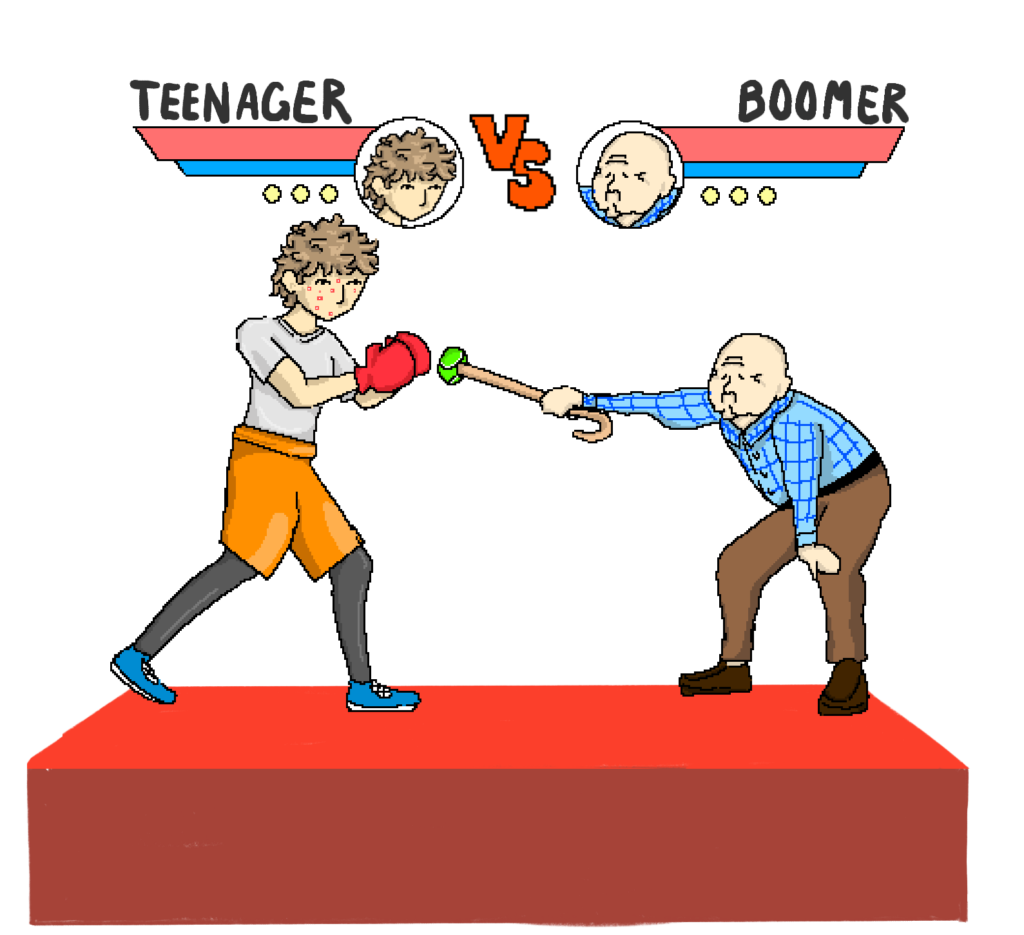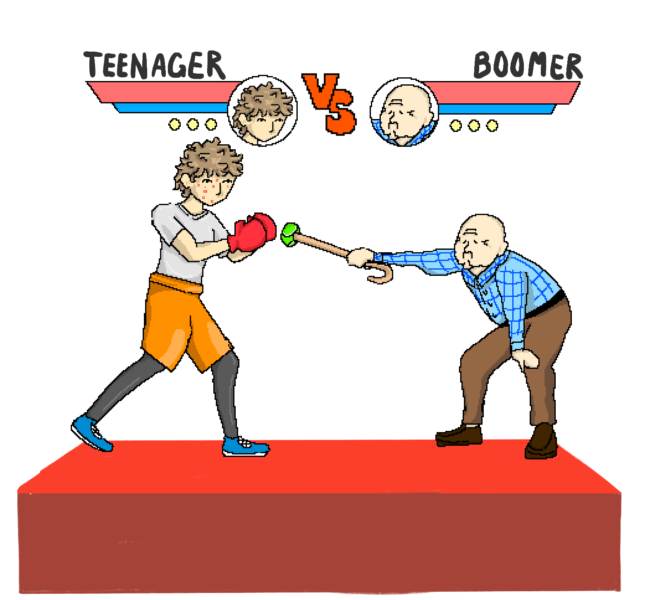

With the rise of Generation Alpha and new technology, generational divides have become increasingly prevalent and influence intergenerational interactions.
Already, Generation Alpha, categorized to include people born after 2010, has established its presence in pop culture with the intriguing phenomenon of 10-year-olds frequenting beauty and skincare retail stores like Sephora, provoking worries about the rapid maturation of the youngest generation.
“[They] seem to be really eager to grow up,” said freshman Adya Tewari. “Kids who are so young are using skincare that isn’t meant for them, like Drunk Elephant. They have phones and access to social media at such a young age. It’s going to negatively affect them in the long run.”
The stereotypes facing Gen Alpha contribute to a widening gap between generations.
“There’s an increasing gap between generations,” Tewari said. “Even though Gen Z is stereotyped to be addicted to technology and antisocial … and shares a lot of similarities with Gen Alpha, I don’t associate myself with them. They’re a lot more extreme than us.”
Each generation feels like they are perceived negatively by others.
“Our generation isn’t perceived in a positive light,” said sophomore Shreeya Gupta. “We have so much privilege: it’s looked down upon. People from older generations don’t believe we work as hard as they did.”
This disparity is rooted in the many distinct advantages and challenges faced by different generations.
“[Gen Z] has been brought up in a time where there is abundance,” said dance teacher Marisa Castillo. “[They] have everything at [their] fingertips. [Their] music, photos, information—it’s all a click away. [They] all are much more informed and [know about] diverse subjects early on … But the older generation … endured a lot of injustice and a lot of discrimination. They persevered through the belief of hard work and pulling-yourself-up-through-your-bootstrap mentality.”
Another significant contributor to the generational divide is the proliferation of technology.
“There’s a big gap between generations … [and] the main reason isn’t even tradition or values,” Gupta said. “It’s the implementation of artificial intelligence and technology. [The older generation] has a different way of life: how jobs have become, our way of living, how we learn.”
Another criticism Gen Z faces is their lack of focus, which heavily impacts classroom dynamics.
“[When] I was teaching, somebody was playing [The New York Times’] Connections [game],” said English teacher Dena Johnson. “Someone else was texting. Several people had one earbud in, so they’re half-tuning me in, half-tuning me out. None of that … would even [be] possible when I was [in] high school.”
A disparity in media tastes further adds to this disconnect.
“I can’t always relate to everything that students are interested in,” Johnson said. “I’m not on any social media. I don’t listen to the same music. I don’t watch the same TV shows.”
Yet some offer a different perspective, noting the ever-changing nature of society and a shared humanity across generations that transcends any gap.
“There was a bigger gap between … me and my parents [than] between my children and me [now] just because of how much society has changed,” said English teacher James Daniel. “I don’t see enormous differences between the younger generation compared to when I was in high school … People are people.”
Ultimately, all generations have their differences and this contributes to a divide amongst them. It significantly shapes the way individuals perceive and interact with one another.



